The festival in Sochi ended with three premieres with subtle emotional organization
[ad_1]
Everyone expected something special from the finale, and maestro Yuri Bashmet did not disappoint, once again surprising with the contrasting combination of new and old classics.
The gala concert program was changed at the very last moment; and they opened it not with Mozart, as they had planned, but with Ravel. The pastoral work of the French composer, depicting the sunrise with sounds (from the ballet “Daphnis and Chloe”), set the audience in the right mood. Everything that sounded that evening touched the subtle strings of the soul. The All-Russian Youth Symphony Orchestra (about 150 young musicians) played Symphonic Suite No. 2 under the direction of Yuri Bashmet. And then the maestro gave way to the young conductor Alexei Rubin, who was to conduct the first premiere of the evening.
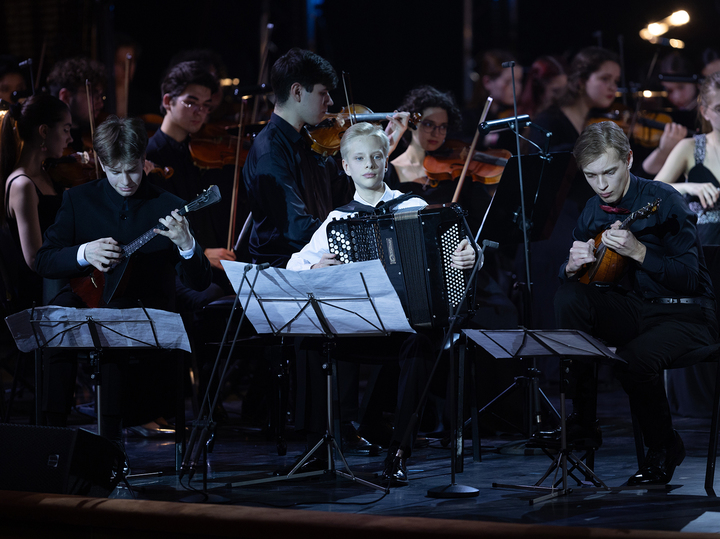
“Dreams” is a composition by Denis Khorov for dombra, balalaika and button accordion, written during the pandemic. During the lockdown, many musicians were left without salaries or orders, and Yuri Bashmet decided to support the young. All three premieres that were performed this evening in Sochi were written just when everyone was alone with themselves and could not lead their usual way of life. In solitude, Denis Khorov created music where many emotions are intertwined, and it resembles a deep psychoanalysis of one’s own self. There is such an expression – “subtle mental organization.” The music composed by Chorov during the pandemic is exactly about this. And, by the way, it became a logical continuation of Ravel’s pastoral.
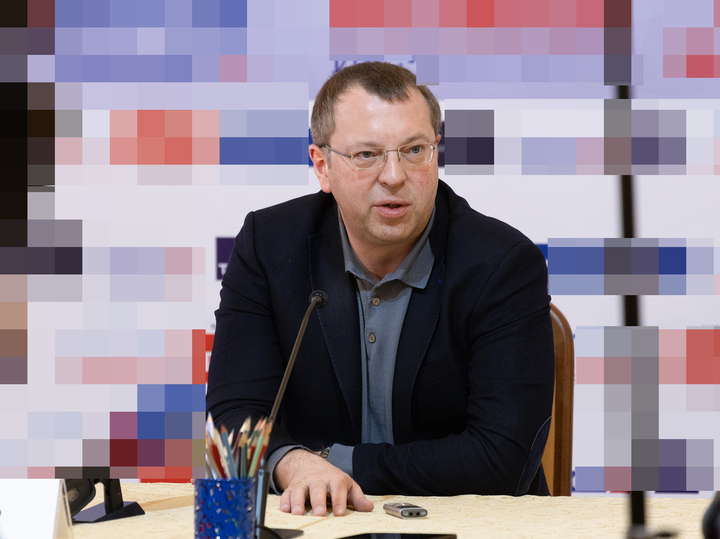
In Tchaikovsky’s Concerto for Violin and Orchestra, Vadim Repin was the soloist, and Yuri Bashmet conducted again. Pyotr Ilyich composed it in the days of waiting for a new stage of the Russian-Turkish war; the work was going hard. “I am in the darkest state of mind today. I can’t even work—I’m so completely absorbed in the sad, hopelessly menacing political news. I’m somehow ashamed to start transcribing a violin concerto in view of the music of cannonballs, bombs, bullets and torpedoes that threatens us,” he wrote to a friend. His experiences were reflected in the music, which after time does not lose its relevance. Repin, in alliance with young musicians and Yuri Bashmet, performed it sensually, conveying all the deep meaning, completing the first movement with extreme emotion.
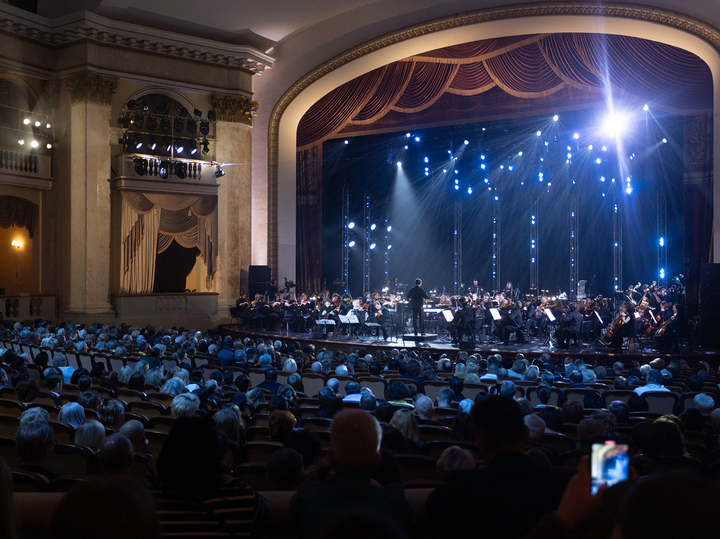
The second was opened by another premiere, entitled “Night Visions” (conducted again by Alexei Rubin). Composer Kuzma Bodrov wrote this composition for an Arabic instrument, the rebab. This ancient single-stringed bowed instrument symbolizes the sadness and grief of the Arab tribes and peoples. It often accompanied stories of an epic nature. Rebab, in the words of the German philosopher Heini, contains “the moods of people.” The soloist was Hassan Moatats El Molla from Egypt. The central part of the composition was his tragic “monologue”, subtly played on one string, as if on nerves.
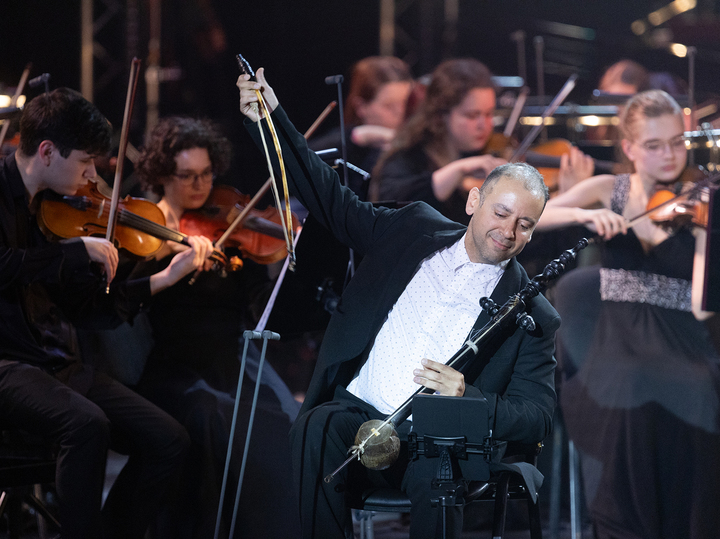
A logical continuation of the mood was the next and, perhaps, the most interesting premiere – music written during the pandemic by Oleg Krokhalev (this is the youngest of the composers whose works were performed at the gala concert – born in 1992). His work received an unusual name – Folded Linen, which translated means “Folded Linen”. However, the translation should not be taken literally. There is such a thing as linenfold – a style of relief carving that imitates the folds of fabric. It was popular in the 14th–16th centuries in Northern Europe, at the end of the Middle Ages. This is a very delicate decorative work. And Krokhalev’s work was distinguished by the same ornamentation. Quiet, without bright moments, without pathos and epic. We seem to hear the sad sound of trees in the dead of night, sometimes interspersed with the faint hum of a modem.
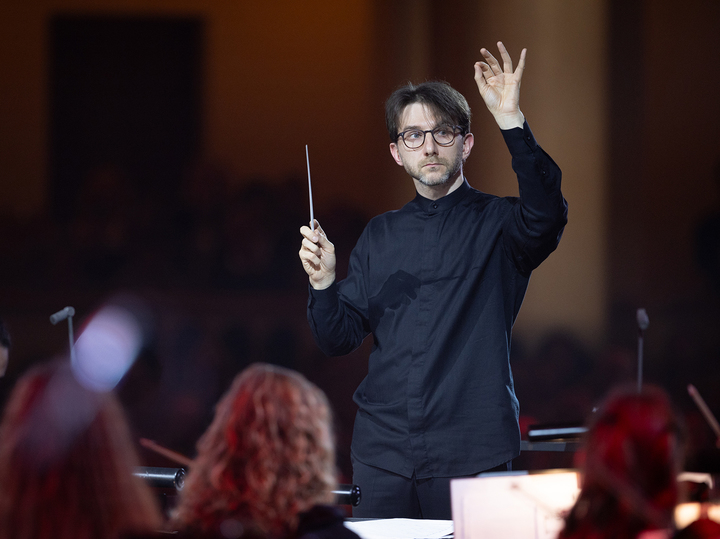
The ghostly obsession was replaced by a soulful performance by the opera diva, soloist of the Mariinsky Theater Olga Peretyatko, who performed the part from “Norma” by Vincenzo Bellini.
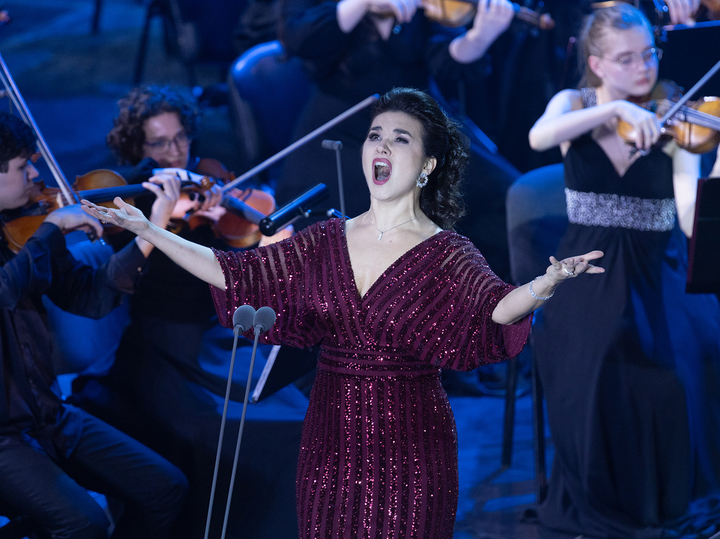
The evening ended on a high note – with the overture to the opera “The Marriage of Figaro” by Mozart (conducted by Yuri Bashmet).
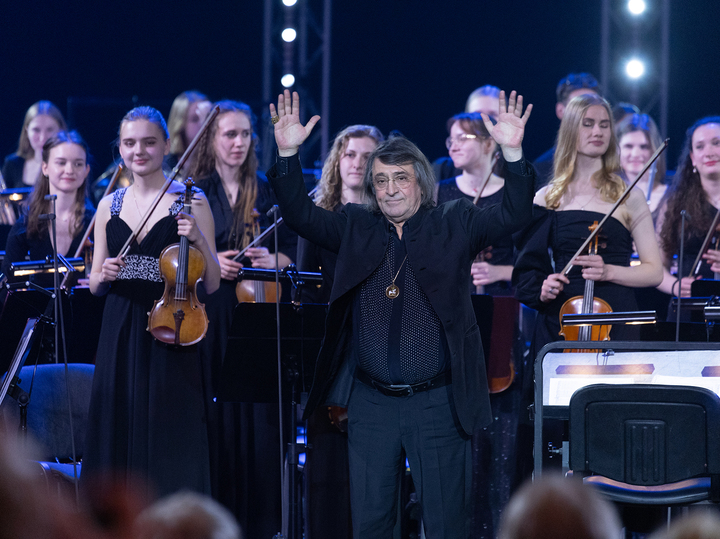
25 February
Gala – closing concert of the festival
Maurice Ravel
“Sunrise» from the ballet “Daphnis and Chloe”
Denis Khorov (b. 1989)
“Dreams” for domra, balalaika, accordion and symphony orchestra
World premiere
Soloists: Stepan Smirnov (domra), Maxim Belnik (balalaika), Vsevolod Yakubovsky (accordion)
Conductor: Alexey Rubin
Pyotr Tchaikovsky (1840-1893)
Concerto for violin and orchestra
D major, op. 35
Allegro moderato – Moderato assai
Canzonetta: Andante
Finale. Allegro vivacissimo
Soloist – Vadim Repin
Conductor: Yuri Bashmet
INTERMISSION
Oleg Krokhalev (b. 1992)
“Folded Linen” for symphony orchestra
World premiere
Conductor: Alexey Rubin
Kuzma Bodrov (b. 1980)
Night visions of the Alhambra for rebab with orchestra
World premiere
Soloist: Hassan Moatats El Molla (Egypt)
Georges Bizet (1838-1875)
Leila’s Cavatina from the opera “The Pearl Fishers”
Vincenzo Bellini (1801-1835)
Norma’s Cavatina from the opera “Norma”
Luigi Arditi (1822-1903)
“Kiss”
Soloist: Olga Peretyatko
Wolfgang Mozart (1756-1791)
Overture to the opera “The Marriage of Figaro”
All-Russian Youth Symphony Orchestra
Artistic director and chief conductor Yuri Bashmet
[ad_2]
Source link






